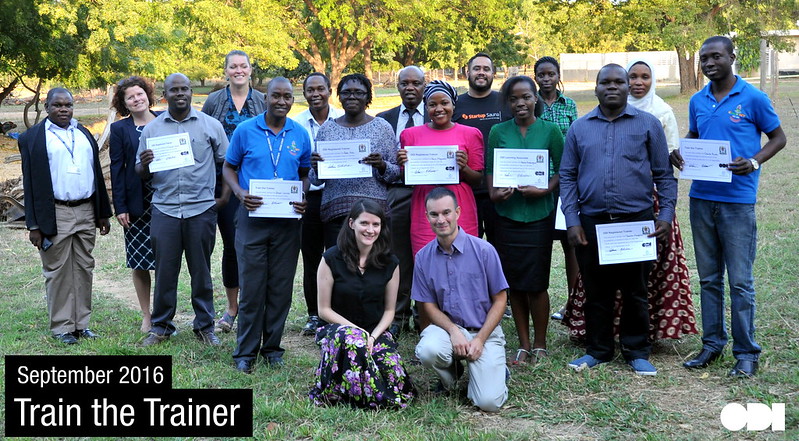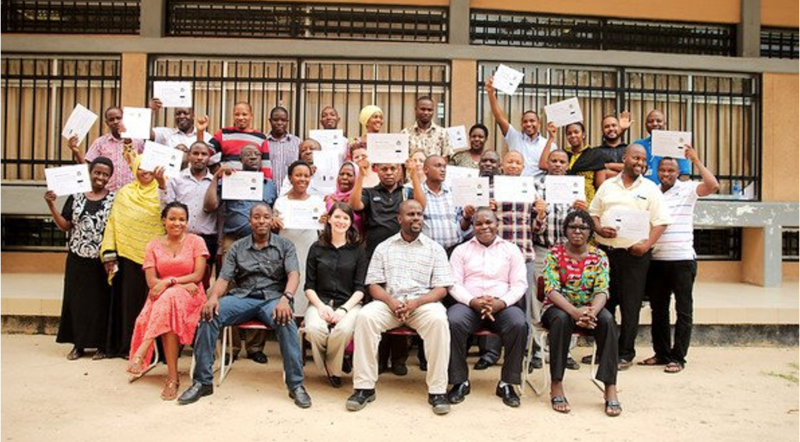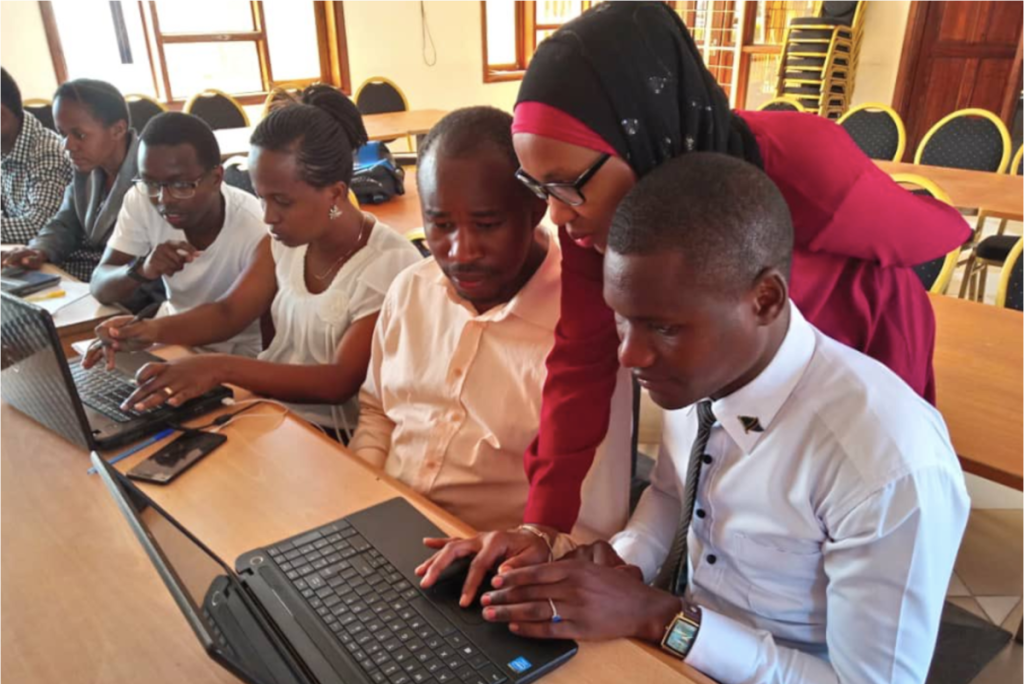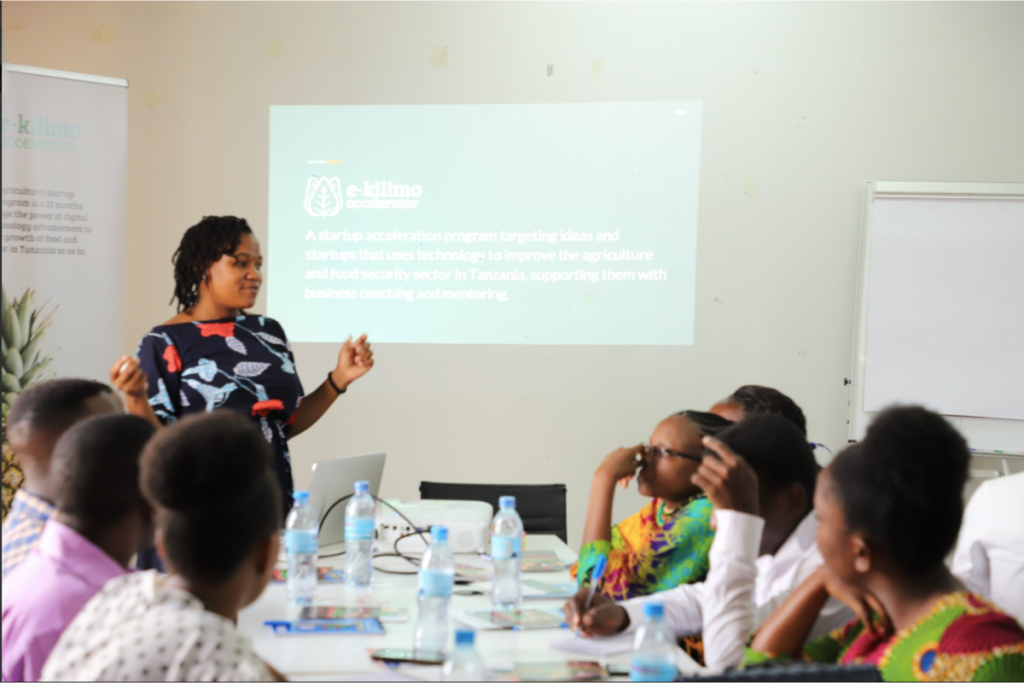The project aim
There were two projects ongoing during this time in Tanzania. The Tanzania Data Lab (dLab) programme was set up by the Open Data Institute (ODI) and other partners to improve data skills in Tanzania and support the national interest in using data to make better decisions. At the same time, a capacity-building project was underway to provide support to the Tanzania Open Data Initiative. There were many streams of work, and I worked mainly on data literacy.
The design
There were four elements to the data literacy stream: creating a curriculum, developing online learning, creating a face to face programme and building capacity in local trainers to deliver it. Local partners ran a training needs analysis, which my team and I then developed into a curriculum, before designing a face to face programme for civil servants and delivering an in-country Train the Trainer programme.
My role
I created new and localise existing practical online learning based on the curriculum which anyone could access and use to improve their data skills.
I co-delivered a week-long localised version of Train the Trainer (or Training of Trainers as it was referred to) to 10 trainers in Tanzania. Participants were keen and had IT and data skills, but only a couple had done any teaching or training before.
For those that were successful, I then worked with them for another 9 months. The aim was to get them to a place where they could train without us, and gradually remove our presence from Tanzania. I remotely coached and mentored them through their first codelivery with my colleague of an existing ODI course. Then I supported them to create a week-long programme that encompassed all of their specialities. I supported their delivery in person, but they led the week. For the next delivery, which they did on their own, I supported them remotely, whilst continuing a mentoring programme to further their development as data trainers.

Image credit: ODI CC-BY-SA

Image credit: ODI CC-BY-SA
The outcome
By the end of the project, the trainers had delivered training to over 1000 participants and have since trained many, many more.
I have never delivered training before. Doing [Train the Trainer] made me feel like “Yes, I am a professional trainer”. My confidence levels have reached so high in this area because now I know I will not just be training people, but teaching them knowing that they understand. You ask me how? The answer is simple. I have learnt the skills of delivering a quality training!

Image credit: ODI CC-BY-SA

Image credit: ODI CC-BY-SA
Read more about the project
This project was a milestone in forging my career and interests. It’s hands down one of the best things I have ever been involved in.